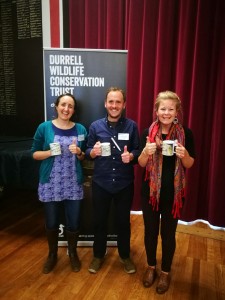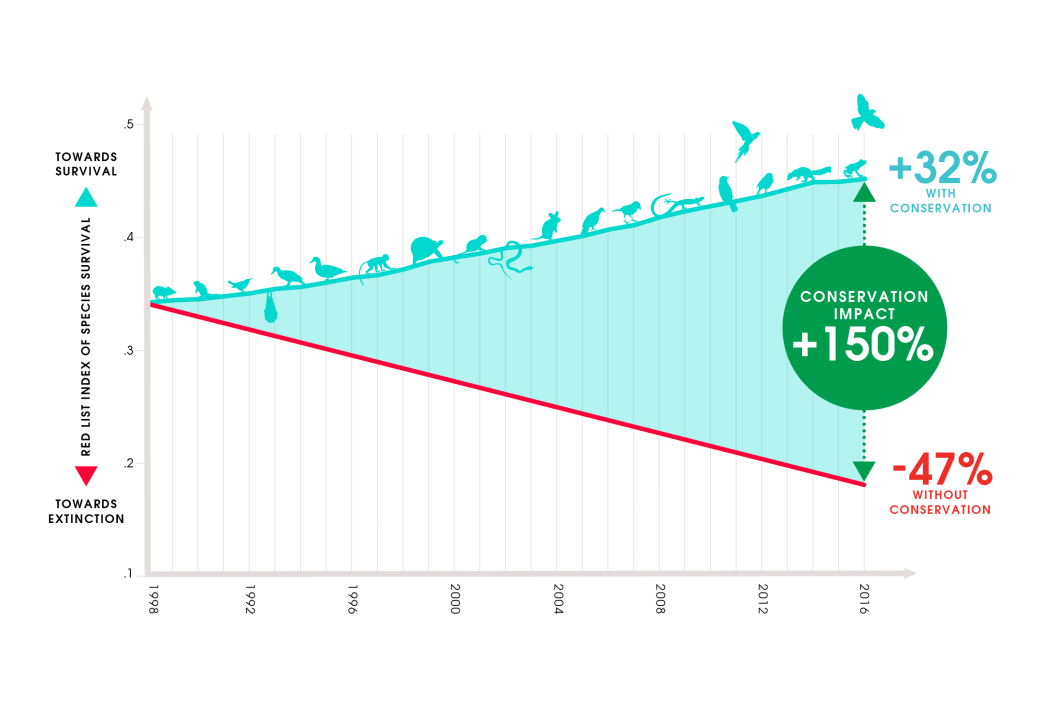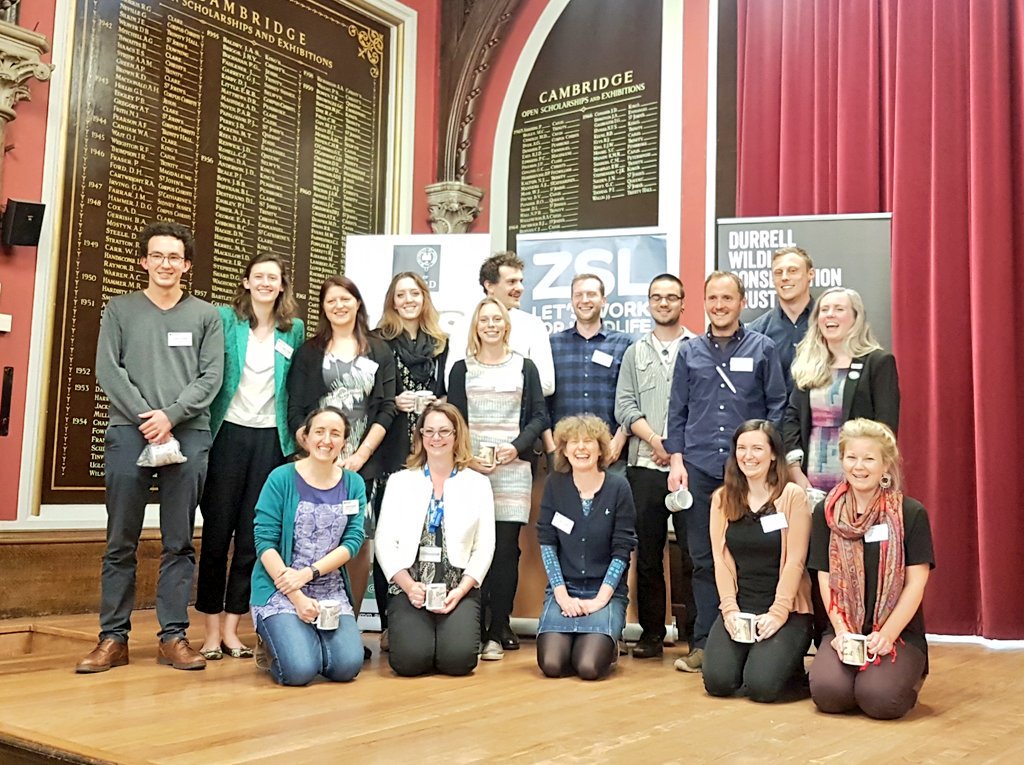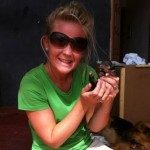Always look on the bright side of life… de do, de duum de dom de do…. We all know the tales of woe, so positivity we will sow, by sharing the effective things we do…
 One of my personal highlights from the Conservation Optimism conference – sisters Julia and Kat Jones reminding us why we need positivity through a brilliantly bonkers kazoo rendition of Monty Python’s Always Look On The Bright Side Of Life. As someone working in the conservation sector, I could certainly do with some brighter sides of life. It’s easy to get bogged down – we are constantly bombarded with doom and gloom messages telling us how the world is warming, ocean temperatures are rising, ice caps are melting, forests are being decimated in a meagre exchange for cheap resources, yet another species faces extinction, its habitat destroyed, polluted or overrun with invasives, and the collaborative targets in place to reverse these threats just aren’t being met. I could go on. The environment isn’t high up enough on the global agenda, we are destroying ecosystems the world over for short term gains, so let’s face it – what’s the point; can we really reverse these trends, especially amidst a continually growing human population that will place further pressure on our already delicate ecosystems?
One of my personal highlights from the Conservation Optimism conference – sisters Julia and Kat Jones reminding us why we need positivity through a brilliantly bonkers kazoo rendition of Monty Python’s Always Look On The Bright Side Of Life. As someone working in the conservation sector, I could certainly do with some brighter sides of life. It’s easy to get bogged down – we are constantly bombarded with doom and gloom messages telling us how the world is warming, ocean temperatures are rising, ice caps are melting, forests are being decimated in a meagre exchange for cheap resources, yet another species faces extinction, its habitat destroyed, polluted or overrun with invasives, and the collaborative targets in place to reverse these threats just aren’t being met. I could go on. The environment isn’t high up enough on the global agenda, we are destroying ecosystems the world over for short term gains, so let’s face it – what’s the point; can we really reverse these trends, especially amidst a continually growing human population that will place further pressure on our already delicate ecosystems?
But what we don’t hear so regularly is that amidst all this negativity, there are glimmers of hope that are struggling to shine through, and it is these glimmers that need our help to reach the surface.
That’s not to say we shouldn’t communicate the threats we face – we need to be realistic; we are in the midst of a major biodiversity crisis that shouldn’t be underestimated. But whilst we must be honest and open about these pressures, we also need to talk about our successes in order to learn from them, to share effective practices, and to provide people with the belief that ours is a cause worth fighting for.
I’ve been working at Durrell for over a year now and the stand out take home message for me is that conservation really can work. I’m talking about species that were once reduced to just a handful of individuals with populations so small that most thought it impossible to save them – the Mauritius kestrel, the echo parakeet, the Round Island boa and the orange tailed skink have all been brought back from the brink of extinction due to the dedicated work of Durrell and the Mauritian Wildlife Foundation (MWF) – using skills developed through captive breeding that built up the expert understanding required to breed and manage these populations in the wild.
 Elsewhere there are other stories like these – the Arabian oryx, wiped out in the 1970s, has now been successfully reintroduced using animals from private reserves and zoos and closer to home, European bison now number around 500 individuals despite being declared extinct in the wild less than 100 years ago. And these are just the headline grabbing stories; there are plenty of examples of conservation working effectively to keep species numbers healthy enough so that they don’t reach these critically low numbers.
Elsewhere there are other stories like these – the Arabian oryx, wiped out in the 1970s, has now been successfully reintroduced using animals from private reserves and zoos and closer to home, European bison now number around 500 individuals despite being declared extinct in the wild less than 100 years ago. And these are just the headline grabbing stories; there are plenty of examples of conservation working effectively to keep species numbers healthy enough so that they don’t reach these critically low numbers.
Through these positive case studies, we can build up a knowledge base and share skills to be as effective as possible, and this is what we need to focus on.
Let’s learn from each other and help build capacity for conservation across the world. The Conservation Optimism summit shed light on some of the dedicated individuals and groups working across the globe, alongside highlighting the many positive examples of where conservation efforts are working, so let’s share these stories wider, and shout about them louder. Conservation is also in dire need of funding so let’s show investors what’s possible – our return on investment may take some time, but the results are truly impressive; invest in us and we can take conservation impact to scale. The Durrell Index is Durrell’s way of communicating positive stories. It shows the long term difference that our actions make and aggregates all these differences up to show our overall impact through the Durrell Red List Index. Essentially it allows us to spread a message of hope – that conservation works – given time, resources and a number of passionate people, we really can reverse the fortunes of some of the most critically endangered species on earth. I’m excited to be a part of this optimovement and hope that you’ll join us. Let’s build the positivity and optimism needed to empower others, encourage investment, and take successful conservation to scale.


